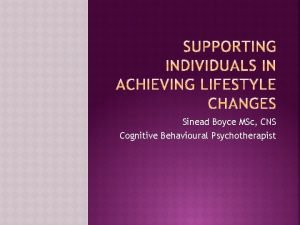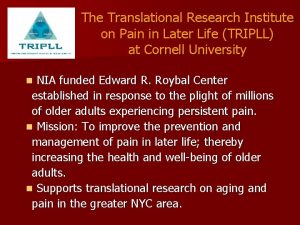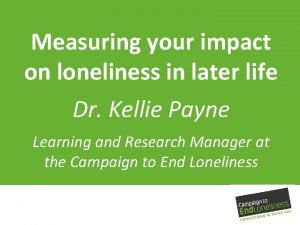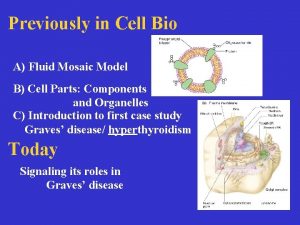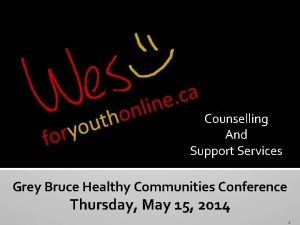COUNSELLING IN LATER LIFE David Richards Psychotherapist previously












- Slides: 12

COUNSELLING IN LATER LIFE David Richards, Psychotherapist & previously Counselling Services Manager, Age UK Camden

Emotional needs in later life • Loneliness: importance of relationships and social interaction • Housing: need for safe and secure accommodation • Equally need for personal contentment & peace of mind

Why counselling? • Counselling is not for all • Important emotional needs may be met by other experiences/services: • E. g. reliable group of family/friends • Befriending, social/support groups • Our social/support needs vary

Internal world • Our psychological needs reflect our character and our personal history • Our situation in later life may have changed, esp. in terms of experience of loss • Our needs may therefore be similar or different than in the past

Camden’s approach • Age Concern Camden (as it was in 1998) identified research about depression in parts of the borough within communities of older adults • ACC bid for funding from two trust funds, one local and one national

Funding & Resources • Initial funding was just for 18 months • One p/t Counselling Manager • Use of volunteer counsellors (trainees wishing to develop their clinical experience): expenses paid • Thus limited financial resources to support a fully functioning service

How it worked 1 • Manager assessed each client referred • Clients referred by GPs and other professionals • But clients could also self-refer • Provision of home visits where needed

How it worked 2 • Volunteer counsellors provided weekly sessions for up to one year • Counsellors attended clinical supervision with manager on fortnightly basis • Volunteers attended regular training workshops run by ACC

Ongoing funding • Further funding was successfully achieved, initially from the local Primary Care Group • This has developed over time into a new partnership (from 2011) with the local NHS Trust

Why so few? 1 • It is important to ask the question: Why have there been so few other counselling services within local Age UK agencies? • Resources may always be limited, but Camden’s experience shows what can be achieved

Why so few? 2 • Is there some resistance to setting up a psychological service within the Age UK environment? • Such a service is of course different to many of the other kinds of services commonly provided, which are primarily practical and social

Why so few? 3 • Maybe there’s lack of understanding about what is required to establish a counselling service? • Maybe emotional/psychological support is seen as less important than practical/social support? • We are living longer: emotional needs are also very important…
 Sinead boyce psychotherapist cork
Sinead boyce psychotherapist cork Translational research institute on pain in later life
Translational research institute on pain in later life Loneliness measurement tool
Loneliness measurement tool Archaebacteria facts
Archaebacteria facts What thailand was previously known as
What thailand was previously known as Rsro ncaa
Rsro ncaa Csun mse 227
Csun mse 227 Gordon richards drexel
Gordon richards drexel The semiotic triangle
The semiotic triangle Eletelephony poem pdf
Eletelephony poem pdf Richard's equation
Richard's equation Triangulo de ogden y richards
Triangulo de ogden y richards Eric richards seminary
Eric richards seminary
